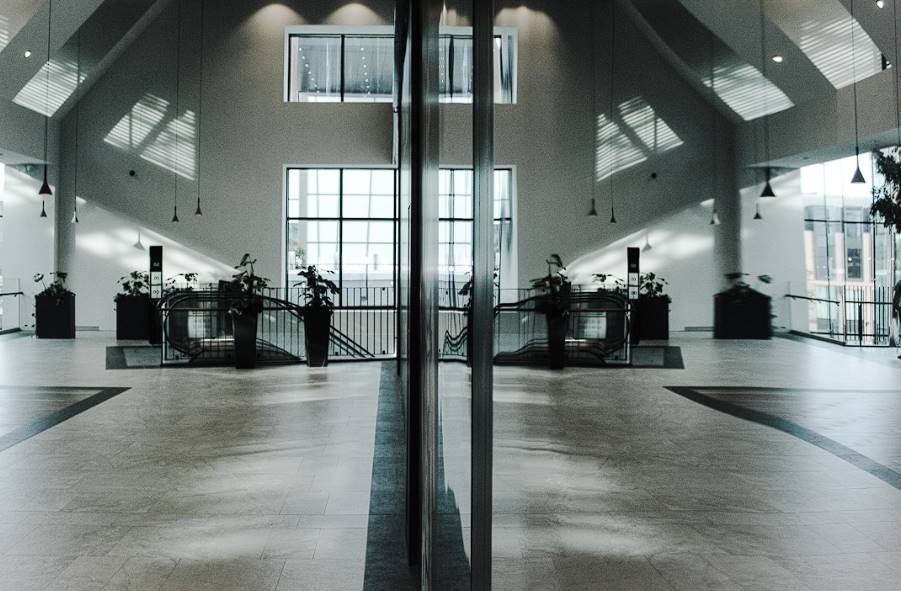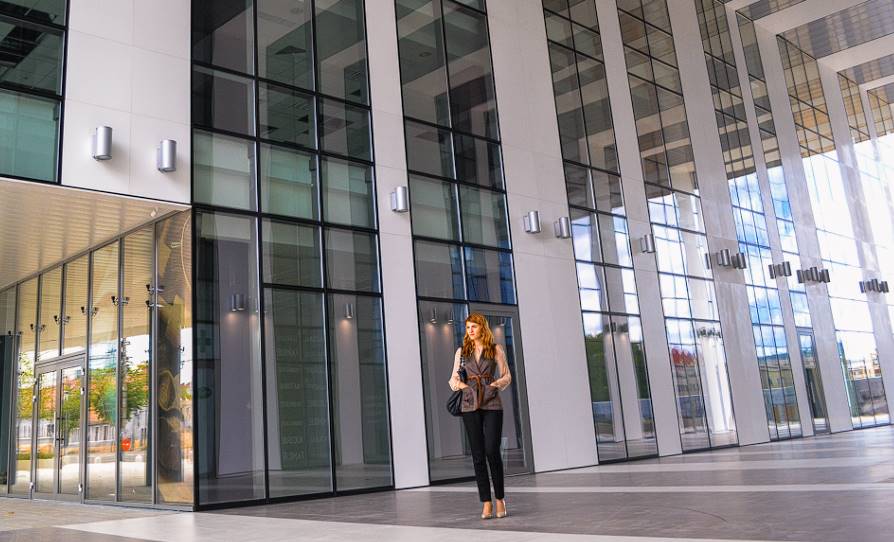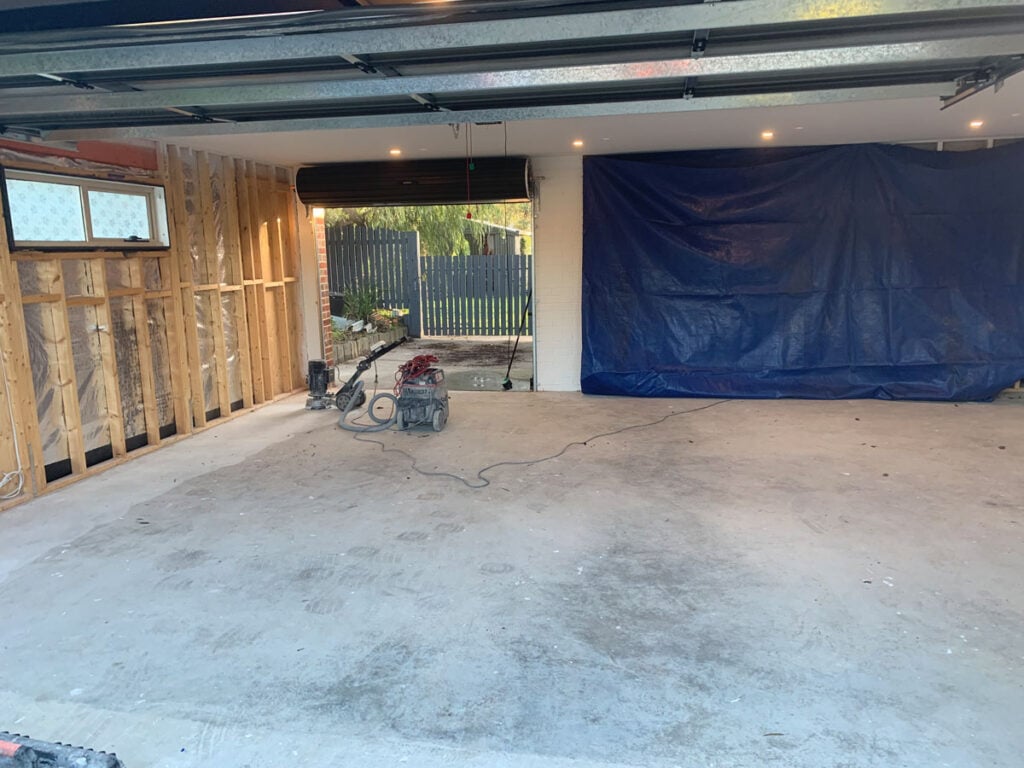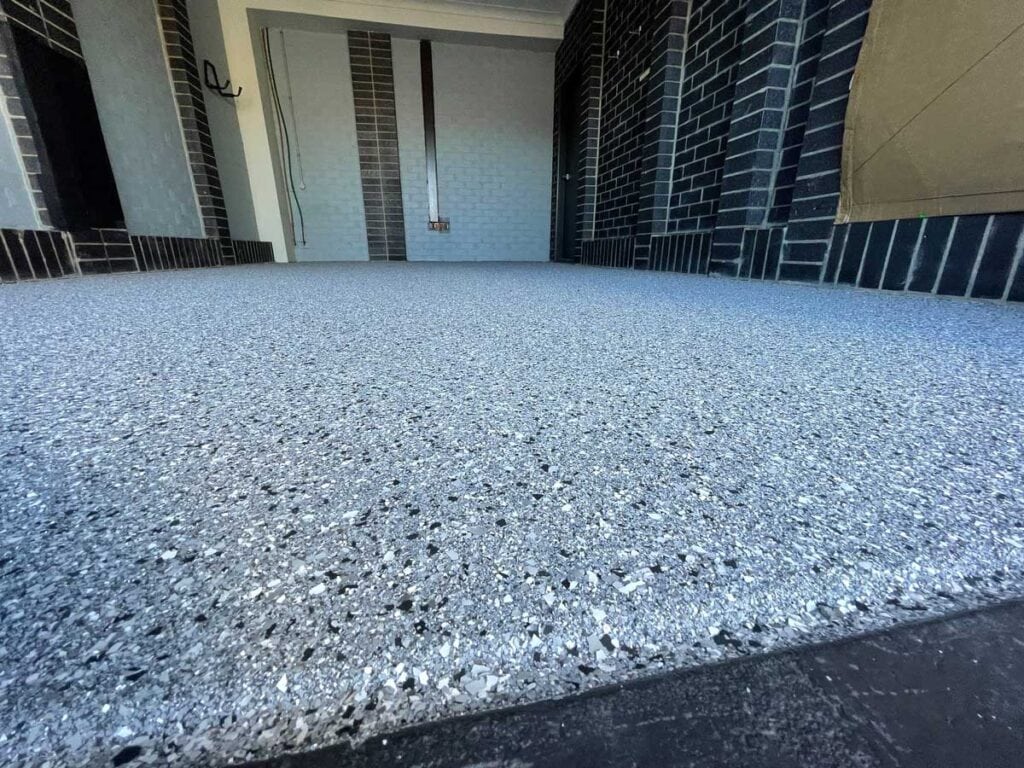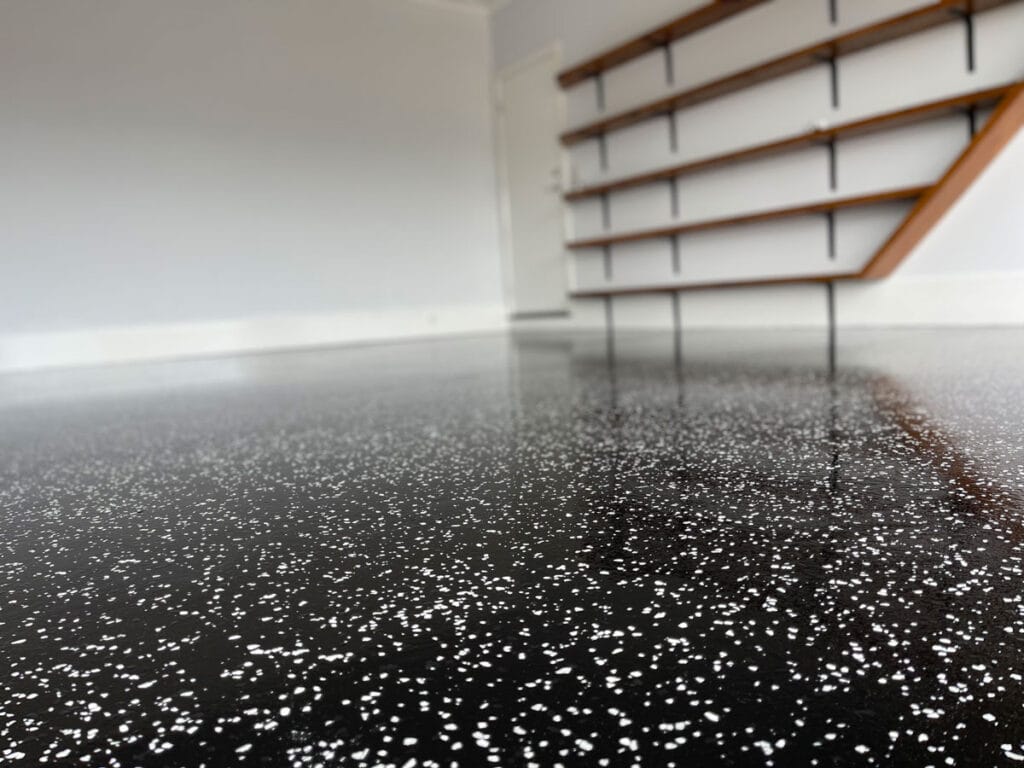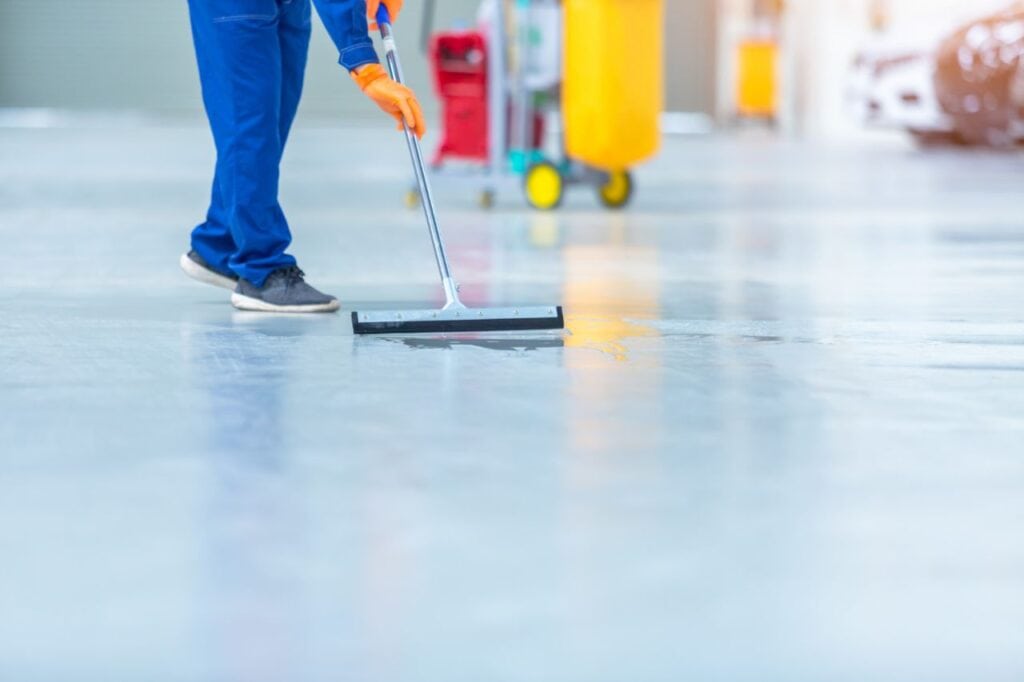Are you in the process of choosing a floor covering for your new house or undergoing a renovation in your apartment? Feeling overwhelmed with limited time and approaching deadlines? Having some extra help would certainly be beneficial. Entrust the tasks to skilled movers who can assist you with moving furniture out of the room and facilitate the transition to a new house with a new floor covering.
Epoxy flooring offers a versatile solution used in various areas of your house. Whether it's bathroom floors, patios, kitchen floors, garage floor coverings, or basement floors, epoxy is a suitable option.
The popularity of epoxy coating stems from its versatility. However, like any other flooring solution, there are advantages and disadvantages associated with using epoxy floors in your house.
Let's now present the key pros and cons of epoxy floors. Considering these positive and negative factors, you can evaluate whether epoxy coating aligns with your flooring requirements.
Pros of Epoxy Floors
An epoxy floor is a floor coating system composed of two main components: a resin and a hardener, commonly called Part A and Part B. When these components are combined, they create a strong and resilient bond that offers resistance to physical and chemical damage.
Traditionally used in commercial and industrial settings, epoxy coatings are capable of withstanding heavy foot traffic, the weight of large machinery, and potential moisture buildup. This makes them particularly suitable for coating garage or basement concrete floors.
But epoxy floors are becoming more and more popular in homes because they are easy to clean and come in a lot of different colours and patterns.
Whether you desire a glossy finish or a subtle matte effect, epoxy floor coatings can be customized to align with your aesthetic preferences.
Epoxy flooring offers numerous advantages over alternative options. It is highly durable, resistant to water and slips, making it an ideal choice for areas with high foot traffic. Furthermore, epoxy floors can be tailored to create a unique look for your home or business. The installation process is relatively straightforward, and with proper care, the finished epoxy flooring can last for many years, even decades.
While there are some drawbacks to consider, such as the potentially higher cost than vinyl or linoleum, the benefits of epoxy flooring far outweigh the disadvantages for many individuals. Therefore, if you are exploring new flooring solutions, epoxy should be on your list of options.
Appearance
Epoxy floors offer a significant visual advantage over typical garage floors as they appear bright and professional. Their attractive appearance alone is a compelling reason to consider using them. Additionally, epoxy floors' smooth and even surface makes them highly convenient to sweep and maintain. Due to the nature of this flooring type, very little sticks to it, making cleanup a breeze. When selecting the best epoxy for wood floors, appearance is a crucial factor to consider.
Excellent Durability
Coatings for epoxy floors are known for how long they last and how strong they are.
However, the exact lifespan of epoxy flooring can vary depending on factors such as the installation's location and quality. For example, public areas that experience heavy foot traffic may have a shorter lifespan than epoxy basement flooring, which can last over twenty years.
One of the key advantages of epoxy flooring is its resistance to various forms of wear and tear. The material is designed to withstand peeling, cracking, and corrosion. In addition, once the epoxy is fully cured, it becomes highly resistant to certain types of chemical damage, including acid exposure.
Moreover, epoxy coatings exhibit strong water resistance and can withstand heat effectively. These qualities make epoxy a popular choice for industrial and commercial applications where resistance to different types of damage is crucial.
Affordability
Epoxy floors offer a cost-effective solution compared to many other types of flooring. The per-square-foot cost of epoxy floors is highly competitive and often difficult to beat. One of the reasons for its affordability is that epoxy can be installed directly over concrete or other existing flooring types, eliminating the need for costly removal and replacement.
By avoiding extensive preparation and installation processes, epoxy flooring helps keep the installation costs significantly lower than alternative flooring options. This makes epoxy an attractive choice for those looking for a budget-friendly flooring solution. The cost-effectiveness of epoxy flooring is one of its prominent advantages, providing immediate savings and value for customers.
Customize as Needed
Epoxy flooring offers many design possibilities, allowing for extensive customization and creating unique aesthetics. The design potential is virtually limitless, with a vast selection of colour options. So whether you prefer a vibrant and bold look, a subtle and elegant finish, or even a metallic effect, epoxy flooring can suit your specific style preferences.
In addition to colours, epoxy flooring incorporates intricate patterns, geometric shapes, and custom designs. These creative elements can seamlessly integrate into the flooring, creating a visually striking and personalized space.
Furthermore, the durability and non-stick properties of epoxy flooring ensure that the design remains intact and resistant to wear. The customized shapes, patterns, and colours will not fade or deteriorate over time, providing a long-lasting and visually appealing flooring solution.
Beyond the aesthetic benefits, epoxy flooring's non-stick surface makes it easy to clean and maintain. The smooth and even surface prevents dirt, stains, and spills from adhering, allowing for effortless cleaning and ensuring the flooring's bright appearance is preserved.
Resistance
Epoxy floors exhibit exceptional resistance to various substances, including oil, gasoline, bleach, transmission fluid, and various cleansers. This durability and chemical resistance make epoxy flooring a popular choice for garage settings and within the automotive industry. In addition, the coating is designed to withstand chemical spills and cleaners without adverse effects.
In addition to its chemical resistance, epoxy floor coating is highly resistant to heat and water. It can withstand exposure to elevated temperatures and is impervious to water damage. This makes epoxy floors well-suited for environments where heat and moisture are present.
Furthermore, epoxy floors possess inherent antimicrobial properties, rendering them resistant to bacteria and germs. This characteristic makes epoxy an excellent flooring option for environments that require high levels of cleanliness and sanitation, such as hospitals and clinics. The ability to easily sanitize epoxy floors contributes to their suitability for these specific applications.
Economical Flooring System
Epoxy floor coatings offer a cost-effective solution with a low cost per square foot compared to many other types of flooring. This is mainly due to installing epoxy directly over existing concrete without other flooring systems. While the initial cost of epoxy may be higher than alternatives like concrete polishing, the long-term cost benefits become evident.
When the epoxy eventually wears out and requires replacement, the overall cost is lower because there is no need to prepare the concrete substrate again. This reduces the labour and material expenses associated with the replacement process. As a result, epoxy flooring has a lower lifecycle cost than other flooring solutions.
By considering the installation cost, durability, and ease of maintenance, epoxy flooring emerges as a cost-effective long-term option for various applications.
Cons Of An Epoxy Floor
While epoxy flooring offers durability and ease of maintenance, it's important to consider some potential drawbacks before opting for this flooring solution.
One notable disadvantage is the higher cost than more affordable flooring options like linoleum or vinyl. If budget constraints are significant, there may be more economical choices than epoxy flooring. However, it's worth noting that although the upfront cost may be higher, the long-term savings can outweigh the initial investment due to the durability and low maintenance of epoxy flooring. Additionally, performing the installation yourself can reduce the overall cost.
When deciding whether to choose epoxy flooring, it's essential to carefully evaluate the pros and cons, considering your specific needs, budget, and long-term expectations.
Temporary
A notable drawback of using epoxy flooring is that it is not a permanent solution and will require eventual replacement. Despite its durability and resistance, everyday wear and tear can cause damage to epoxy floors over time. Regular use and the impact of heavy objects being dropped on the surface can lead to cracks and chips. Initially, chips may be a minor inconvenience, but if left unaddressed, they can result in larger sections of the epoxy coating peeling off. The presence of damaged areas can also cause wheeled carts and toolbox wheels to become caught or hindered. In such cases, repairs or recoating of the floor are necessary to restore its appearance and functionality.
Takes Time to Cure
After installing epoxy flooring, it is necessary to allow for a sufficient curing period for optimal results. This process typically takes several days to ensure maximum strength and endurance of the coating. However, the extended curing time can be considered a disadvantage, especially for homeowners requiring immediate space use. Waiting up to a week for the epoxy to fully dry and cure may be inconvenient and delay normal activities in the area.
Strong Installation Odors
During the installation process of epoxy flooring, strong and potentially harmful odours can be present. Therefore, installers and homeowners must take precautions by wearing safety masks and goggles, especially if respiratory issues such as asthma occur. In addition, the odours emitted during the installation can be pungent, and if exposed excessively without proper protection, they may pose toxicity risks. Therefore, it is crucial to prioritize safety and take necessary measures to minimize exposure to these odours during installation.
Preparation
Preparing the existing floors for epoxy application can be labour-intensive and time-consuming. It requires thorough cleaning to ensure the concrete floor is free from grease, oil, and solvents. Additionally, cracks need to be filled before applying the epoxy coating. The multiple attempts required for cleaning and the overall preparation work can be seen as a drawback.
However, it's worth noting that advancements in manufacturing and application methods have made it relatively easier for homeowners to apply epoxy coatings themselves using hand tools. These advancements have streamlined the process and reduced the time required for application. With the right tools and techniques, homeowners can achieve satisfactory results in less time.
Difficulty Adhering to Moist Environments
Epoxy flooring can be a cost-effective and practical choice for basement floors due to its seamless nature, easy maintenance, visual appeal, and moisture resistance. However, using epoxy in a basement with moisture problems can present challenges. Proper preparation and drying of the concrete slab are crucial for the successful adhesion of the epoxy coating. If the basement floor is consistently moist or experiences chronic moisture issues, there is a risk that the epoxy may not adhere properly and could potentially lift off the floor. Therefore, it's important to address any underlying moisture issues in the basement before considering epoxy flooring to ensure its long-term durability and performance.
Slippery
While epoxy floors generally offer some level of skid resistance, certain factors can affect their slipperiness. For example, oil-covered epoxy surfaces can become slippery, posing a risk. Additionally, when epoxy floors are wet, they can become slippery, potentially leading to dangerous situations. As a result, areas prone to spills or water on the floor may not be the best candidates for epoxy flooring.
However, the slipperiness can be mitigated by adding texture to the floor. In addition, by incorporating texturizing methods or materials during the installation process, you can improve the slip resistance of the epoxy floor. This consideration should be considered when determining whether epoxy flooring suits specific environments or applications.
Resistant to Wear and Tear
Applying epoxy on floors, particularly in garage floors or parking areas, creates a smooth surface that helps minimize the forces exerted on vehicle tires, reducing the potential for damage. This protective feature also extends to equipment that operates on these surfaces, offering added benefits. Furthermore, by incorporating additives like vinyl flakes into the epoxy, traction on the floor surface can be enhanced, further improving safety and reducing the risk of slipping or skidding.
Removal
Modifying the colour or design of epoxy floors after they have been applied can be challenging and expensive. Likewise, removing the existing coating can be labour-intensive and difficult when the floor needs repairs.
Considering the pros and cons of epoxy floors, it is strongly advised to seek guidance from a professional contractor who can assess the condition of your floor and provide expert analysis. They can also evaluate the moisture tolerance of the floor to minimize the risk of delamination, ensuring that the best possible decision is made regarding the installation and maintenance of epoxy floors.
Conclusion
Epoxy flooring is a versatile floor coating system composed of two main components: a resin and a hardener, commonly called Part A and Part B. It is highly durable, resistant to water and slips, and can be tailored to create a unique look for your home or business. However, there are some drawbacks to consider, such as the potentially higher cost than vinyl or linoleum, but the benefits of epoxy flooring far outweigh the disadvantages for many individuals. Epoxy floors are a popular choice for wood floors due to their attractive appearance, durability, affordability, and customization. They are resistant to wear and tear, chemical damage, water resistance, and heat. They are also cost-effective and can be installed directly over concrete or other existing flooring types, eliminating the need for costly removal and replacement.
Additionally, they can be customized with a vast selection of colour options, intricate patterns, geometric shapes, and custom designs. Epoxy flooring is a long-lasting and visually appealing flooring solution with exceptional resistance to various substances, heat and water, and antimicrobial properties. It is also a cost-effective solution with a low cost per square foot compared to other types of flooring. However, it is important to consider some potential drawbacks before opting for this flooring solution. Epoxy flooring is a durable and low-maintenance flooring option, but it is not a permanent solution and requires eventual replacement.
It requires a sufficient curing period and strong installation odours, so it is important to take precautions and wear safety masks and goggles during installation. Preparation for epoxy application can be labour-intensive and time-consuming, and cracks need to be filled before applying the coating. However, the long-term savings can outweigh the initial investment due to its durability and low maintenance. Advancements in manufacturing and application methods have made it easier for homeowners to apply epoxy coatings themselves. However, it is important to address any underlying moisture issues in the basement before considering epoxy flooring to ensure its long-term durability and performance.
Additionally, certain factors can affect epoxy floors' slipperiness, potentially leading to dangerous situations. Epoxy flooring is suitable for certain environments and applications, such as garage floors and parking areas. It is resistant to wear and tear and can be enhanced with traction additives. However, removal can be challenging and expensive, so it is important to seek guidance from a professional contractor to assess the condition of the floor and evaluate the moisture tolerance.
Content Summary
- Epoxy floors offer versatility and can be used in various areas of the house.
- They are suitable for bathroom floors, patios, kitchen floors, garage floor coverings, and basement floors.
- Epoxy coatings are known for their resistance to physical and chemical damage.
- They can withstand heavy foot traffic and the weight of large machinery.
- Epoxy floors are easy to clean and come in a wide range of colors and patterns.
- They can be customized to achieve a glossy or matte finish.
- Epoxy flooring is highly durable and can last for many years, even decades.
- It is resistant to water and slips, making it ideal for high-traffic areas.
- The installation process is relatively straightforward.
- Epoxy floors offer a significant visual advantage and appear bright and professional.
- The smooth and even surface of epoxy floors makes them easy to sweep and maintain.
- Coatings for epoxy floors are known for their excellent durability.
- Epoxy flooring is resistant to peeling, cracking, and corrosion.
- Once fully cured, epoxy becomes highly resistant to chemical damage, including acid exposure.
- Epoxy coatings are highly resistant to oil, gasoline, bleach, and various cleansers.
- They exhibit strong water resistance and can withstand heat effectively.
- Epoxy floors are antimicrobial and resistant to bacteria and germs.
- They offer a cost-effective flooring solution compared to many other types.
- Epoxy can be installed directly over existing concrete, reducing the need for costly removal and replacement.
- Epoxy flooring can be customized with a wide range of colors and patterns.
- The design remains intact and resistant to wear, maintaining its appearance over time.
- Epoxy floors are highly resistant to chemical spills and cleaners.
- They can withstand exposure to elevated temperatures and are impervious to water damage.
- Epoxy floors are a cost-effective long-term option for various applications.
- The higher upfront cost of epoxy can be offset by its durability and low maintenance.
- Epoxy floors are not a permanent solution and may require eventual replacement.
- The curing process for epoxy floors can take several days, which may cause inconvenience.
- Strong and potentially harmful odors are present during the installation of epoxy flooring.
- Preparation work for epoxy application can be labor-intensive and time-consuming.
- Epoxy flooring may have issues adhering to moist environments, and underlying moisture problems should be addressed before installation.
Frequently Asked Questions
Between 10 and 20 years
The longevity of an epoxy floor system will vary based on thickness, use and maintenance. Typically, epoxy floors last between 10 and 20 years, much longer than a painted concrete floor, which will chip and wear quickly in high-traffic areas.
Epoxy flooring doesn't scratch easily due to it being a hard resin coating; however, like any surface, if something sharp enough scratches the surface, scratches may appear.
In terms of daily maintenance, epoxy floors are low-key. They don't need much, but a daily sweep and mop should be part of the cleaning routine. By removing the presence of any small particles, you'll keep the floor free of scratches and reduce wear and tear.
Many epoxy floors claim to be waterproof, but they are only temporarily waterproof unless they are resin-rich poured floors. The aggregate needed for most quartz epoxy flooring leads to voids, which allow liquids to penetrate. They rely on a thin top coat of sealant to keep the water out.
Oil and other materials can get trapped under the epoxy. As a result, the coating can't correctly adhere to concrete floors if something obstructs their application. Grease and oil on your floor will also cause the resin to set improperly, which leads to peeling.
